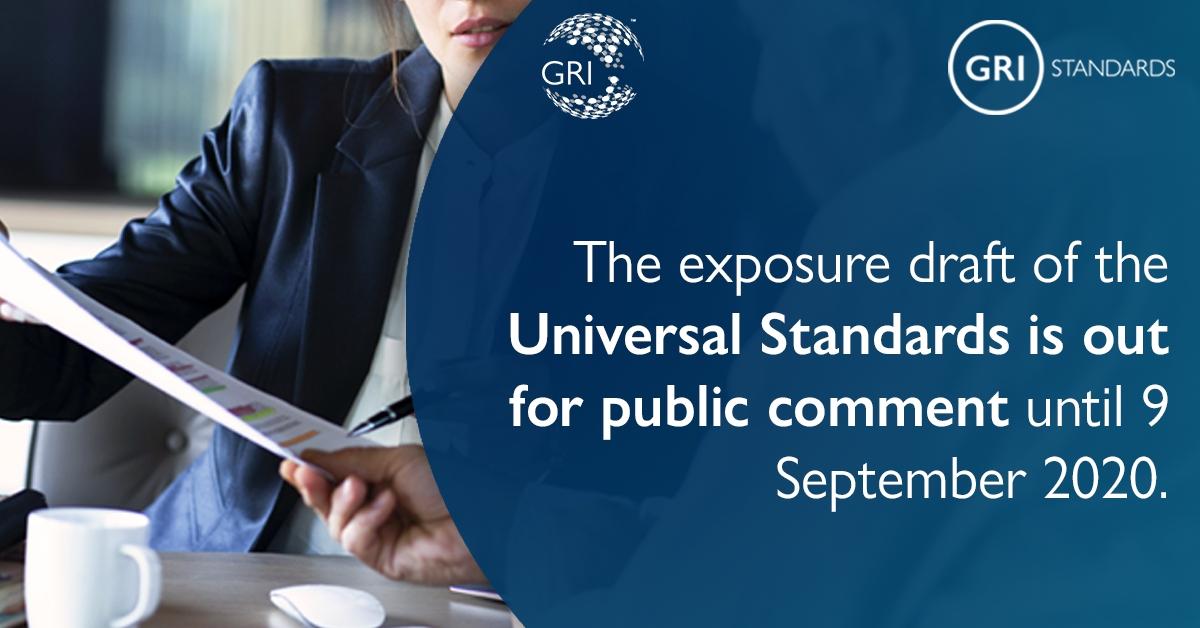The GRI Universal Standards: What's Changing and Why?
By Laura Espinach, GRI Head of Technical Development

In June, we announced a major update to the reporting at the heart of the GRI Standards. The planned revisions to the Universal Standards are significant because they will affect every organization that uses the GRI Standards, supporting them to more effectively report their most significant impacts on the economy, environment and people.
To help put the revised Universal Standards in context, and contribute to the debate about the proposed changes, a series of articles have published by Elaine Cohen, author of the CSR-Reporting blog. Elaine is founder of social and environmental business consultancy Beyond Business and has written three books on corporate sustainability. She is hugely experienced in the field – and well known for her approachable and engaging thought leadership.
Reporting that ensures transparency
Elaine interviewed Bastian Buck (GRI Chief of Standards) and myself to inform her article series. In the first article, which includes a summary of the main Universal Standards proposals, she explores what moving away from the ‘core’ and ‘comprehensive’ reporting options will mean.
As Bastian explains to Elaine, the change is about bringing more clarity: “reporters need to make a clear commitment to stakeholders on where they stand”. A new ‘in accordance’ approach seeks to ensure reporting “delivers a high level of transparency for a broad range of general disclosures and across material topics”.
Attention on human rights
Next up, Elaine’s second article takes a deep dive into the increased focus in the exposure draft on human rights reporting. Why this change, to make the incorporation of human rights related content more explicit?
As I set out, when you look at the impacts a company has on people, “human rights are the most acute”. And “while impacts on people should automatically assume human rights... this has often been underreported by organizations” (a finding of the review of GRI’s human rights related Standards). The revisions address this concern while ensuring closer alignment between the GRI Standards and intergovernmental instruments, such as the UN Guiding Principles on Business and Human Rights.
Refocusing materiality
A change put forward in the updated Universal Standards aims to rectify the practice that led companies to plot sustainability topics in a ‘materiality matrix’, according to the importance of the topics to the business in comparison to stakeholders – which in Elaine’s third article she welcomes.
I explain that it’s important that “the report reflects the impacts and actions of the companies throughout their activities”. That’s why the approach to identifying material topics will now be focusing on an organization’s most significant impacts on the economy, environment, and people, including impacts on human rights.
Governance disclosures
There will be increased reporting on governance disclosures for many organizations under the revised Universal Standards, something that in her fourth article Elaine questions whether is necessary for all reporting organizations.
In response, Bastian sets out that many stakeholders are seeking more reporting from companies on their governance, including “a clear trend of investor interest and demand towards more structured governance disclosure”.
The sector perspective
The revised Universal Standards explain how reporters should also use the Topic Standards (selecting from these to report on their material topics), alongside the relevant Sector Standards – which is a new GRI program under development. We currently have a public comment period underway for the first of those, for the oil and gas sector.
In Elaine’s fifth article, she asked Bastian about the rationale for expanding the GRI Standards to cover sectors. Bastian makes clear that Sector Standards will “complete” and “complement” the other GRI Standards, helping companies within sectors to understand which topics to consider in their materiality assessment. He also explains how we envisage the Sector Standards linking with other frameworks and initiatives: “We recognize the strong work done in this space by many sectors… we see ourselves as building on what others have done in this space” while preserving GRI’s multi-stakeholder and impact-driven focus.
Get involved
The discussion that Elaine has stimulated on our planned changes to the Universal Standards, which conclude with her final recap, is welcome and thought provoking. Others will, of course, have different perspectives. What’s important to recognize is that this is an exposure draft and not final. We want all those with an interest to contribute and help shape the development of the new Universal Standards, which will be released in 2021.
With the public comment period open until 9 September, there is still time to take part. We need wide-ranging feedback to ensure we revise the Universal Standards in a way that enables the GRI Standards to go further in helping organizations increase their transparency and the quality of their reporting.

